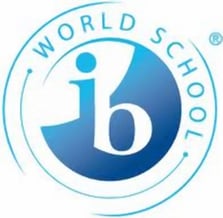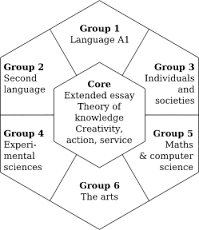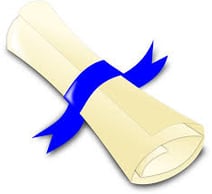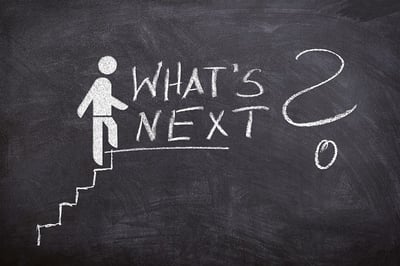Where Can You Get Your High School Diploma Online
If you're reading this article, I assume you know a little bit about the International Baccalaureate (IB) program. If not, I encourage you to read our introductory guide to what this program entails. As a brief refresher, the IB started the program in the 1960s to lead to a rigorous, internationally recognized diploma for entry into universities that students all around the world could earn. In the United States today, there are about 970 IB Diploma Programme high schools. At these schools, some students complete the full IB curriculum in pursuit of what's called an IB Diploma (which I explain in more detail below). At some schools, students are allowed to take a couple of IB classes without being enrolled in the full IB curriculum. Ask your local IB school's IB coordinator whether this is permitted; you can find their contact information in our complete list of IB schools in the United States. As an IB Diploma recipient myself, I'll discuss what it takes to complete the full IB curriculum and receive your IB Diploma. Because of the ongoing COVID-19 (coronavirus) pandemic, November 2021 IB assessments will have two routes, exam and non-exam, depending on which your school chooses. Information is still forthcoming about 2022 IB assessments, but the IB has said that modifications will likely be necessary for those exams as well. There are two main components of the IB Curriculum: the class requirements, and the core. To earn an IB Diploma, you have to take courses from six subjects: one each from groups 1-5, and either one from group 6 or a substitute from groups 1-4. Here are all the courses available. *Interdisciplinary subject that also counts for group 3 (individuals and societies) For a detailed list of courses from each group with descriptions, check out our complete list of IB classes. You must take at least three (but no more than four) classes at the Higher Level (HL); this means studying for a total of 240 hours. The rest of your classes will be taken at the Standard Level (SL), which entails 150 hours of studying. Each class culminates in an exam, which is graded on a scale of 1-7, with a 4 considered passing and a 7 being the highest score possible. For more information on scoring, check out the IB website. To receive your IB Diploma, you will also need to complete what is known as "the core." The core consists of three components: Here's what each of these components entails. Theory of Knowledge, or TOK, is a class that's on the more philosophical side. According to the IB, TOK "asks students to reflect on the nature of knowledge, and on how we know what we claim to know." Simply put, you're encouraged to think about not only what is important to you but also big world issues. Note that there's no exam for this class. Instead, you write a 1,600-word essay and give an oral presentation. You can take TOK online through Pamoja Education. Personally, I loved this class. I think your teacher is critical to enjoying the class (Mr. Fresco, you are the best!). The Extended Essay is not a class but a 4,000-word mini-thesis. You choose a topic that needs to be approved by the IB (which isn't very difficult). You also get an advisor (an IB teacher preferably at your school, though you can get access to one at another school through Pamoja Education). Write about something you enjoy because you'll be spending a lot of time on it. In my case, I loved British theatre, so I wrote about a revolution in post-WWII British theatre. #theatrenerd I really encourage anyone who pursues an IB Diploma to take the Extended Essay seriously. I ended up receiving a full-tuition merit scholarship to USC's School of Dramatic Arts program, and in my interview for the scholarship, I spoke passionately about my Extended Essay. I genuinely believe that this component of the IB Diploma Programme helped me get my scholarship. CAS is a three-part project that requires you to engage in specific kinds of extracurriculars: In short, no. You also need to hit certain score markers on your exams in order to get the IB Diploma. Specifically, you must score 24 points or more between all your IB exams. If you do this, you will receive your diploma as long as you meet all the following requirements as well: The international IB Diploma rate (the percentage of students who received IB Diplomas out of those who were Diploma candidates) is about 80%. This means that around 20% of students who complete the IB curriculum above do not receive an IB Diploma. Furthermore, the IB Diploma rate varies drastically between schools. Some schools have 95% Diploma rates, while others have less than 5% Diploma rates, so I recommend contacting the IB school you're considering to find out its specific Diploma rate. For more information, take a look at our full list of IB schools in the United States. Trying to figure out what extracurriculars you should do? Learn more about participating in the Science Olympiad, starting a club, doing volunteer work, and joining Student Government. Studying for the SAT? Then check out our complete guide to the SAT. If you're taking the SAT in the next month or so, get started with our guide to cramming for the exam. Not sure where you want to go to college? Get advice on how to find your target school. Also, we can help you determine your target SAT score or target ACT score. One of the single most important parts of your college application is what classes you choose to take in high school (in conjunction with how well you do in those classes). Our team of PrepScholar admissions experts have compiled their knowledge into this single guide to planning out your high school course schedule. We'll advise you on how to balance your schedule between regular and honors/AP/IB courses, how to choose your extracurriculars, and what classes you can't afford not to take. 

2021-2022 IB Exam Changes Due to COVID-19
The 2 Main Parts of the IB Diploma Programme Curriculum
Class Requirements
IB Group Group Name Courses 1 Studies in Language and Literature
2 Language Acquisition
3 Individuals and Societies
4 Sciences
5 Mathematics
6 The Arts

The Core
#1: Theory of Knowledge (TOK)
#2: Extended Essay
#3: Creativity, Activity, Service (CAS) Project
Are These All the Requirements to Get Your IB Diploma?

How Difficult Is It to Meet These IB Diploma Standards?

What's Next?


About the Author
As an SAT/ACT tutor, Dora has guided many students to test prep success. She loves watching students succeed and is committed to helping you get there. Dora received a full-tuition merit based scholarship to University of Southern California. She graduated magna cum laude and scored in the 99th percentile on the ACT. She is also passionate about acting, writing, and photography.
Where Can You Get Your High School Diploma Online
Source: https://blog.prepscholar.com/ib-curriculum-ib-diploma-requirements
0 Response to "Where Can You Get Your High School Diploma Online"
Post a Comment